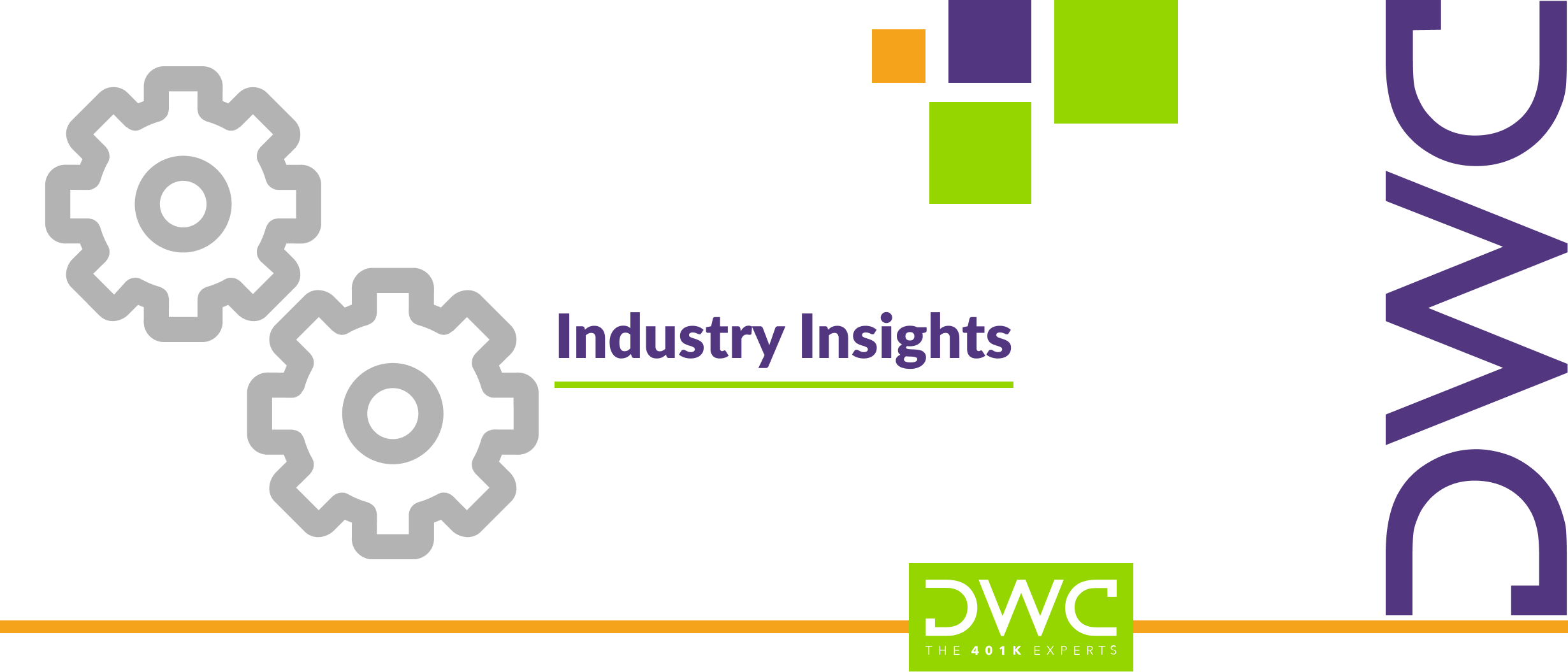Forfeitures
Extra! Extra! Stay up to date on the latest news about the DWC team.
The retirement plan landscape is ever evolving. We distill the details so you don’t have to!
We’ve corralled the best news from inside the beltway – not only regulations, but also new legislation from Congress as well as relevant guidance from the IRS and Department of Labor. In true DWC fashion, we don’t just repackage a recitation of the rules, we provide our thoughts and commentary about what those rules mean to you.
We know cash balance rules can be intimidating! Settle into the Cash Balance Corner and let us break it down for you.
Have 401(k) questions? We have 401(k) answers! We bring you answers to many of the common questions we receive.
A behind-the-scenes look not at how the sausage is made, but why we make it the way we do. (Hint: It’s all about the best interests of the client.)
We’re all about learning from other people’s (alleged) mistakes. We might not be attorneys, but we still follow benefits-related cases and summarize lessons and key take-aways. No hourly fee needed for these insights!
A deeper dive into retirement plan topics doesn’t have to be headache-inducing. Our Pension Primer articles provide depth of information without depth of jargon!
It’s rare that updates to the Form 5500 warrant little more than a yawn, if anyone other than those who prepare the forms even notice. That is NOT the case with changes issued by the Department of ...
Read More
DWC
|
Are There Plan Design Options We Should Consider as Part of the Mandatory Cycle 3 Plan Document Restatement?
Facts We’ve been following your recent posts about how making even small changes to certain plan provisions can make managing the plan easier without sacrificing our objectives. Making life easier, ...
Read More
Facts We are reviewing our company expense budget to identify any that we can eliminate or reduce. We’ve read that it is possible to pay expenses related to maintaining company retirement plans out ...
Read More
Facts Like many businesses, we’ve been watching our cash flow carefully over the past several weeks. We’re making adjustments where necessary so that we can stay on top of the invoices we receive ...
Read More
Facts The annual compliance report that our TPA provided to us indicates that we over-funded matching contributions for certain employees and instructs us to transfer the excess amounts out of the ...
Read More
DWC
|
Is It Possible to Split Eligibility to Allow for Deferrals but to Postpone Safe Harbor Contributions?
Facts We allow new employees to join our 401(k) plan on the first of the month after they are hired. They become eligible to make deferrals and also receive the company safe harbor contribution at ...
Read More
With all the responsibilities that come with being a plan sponsor, not to mention a business owner, your plan’s forfeiture account probably doesn’t make it anywhere near the top of the priority list. ...
Read More
Facts In last week’s QOTW, you provided some tools we could use to identify which participants were affected by our decision to close one of our locations, and to calculate our actual turnover rate ...
Read More
Any company that sponsors a retirement plan for its employees has a responsibility to operate the plan properly, to follow a prudent process in making plan-related decisions (and monitoring those ...
Read More
Facts When we first established our 401(k) plan, the company didn’t have a lot of discretionary income, so we went with a low-cost provider and set it up so the plan would pay for its own fees. We ...
Read More
Facts We have a 401(k) plan that includes several different types of contributions—employee deferrals, a company-provided safe harbor match, and a profit sharing contribution. The plan has a 6-year ...
Read More




















